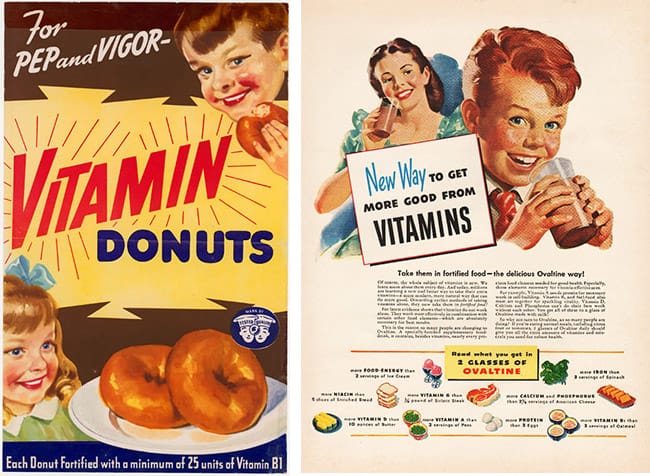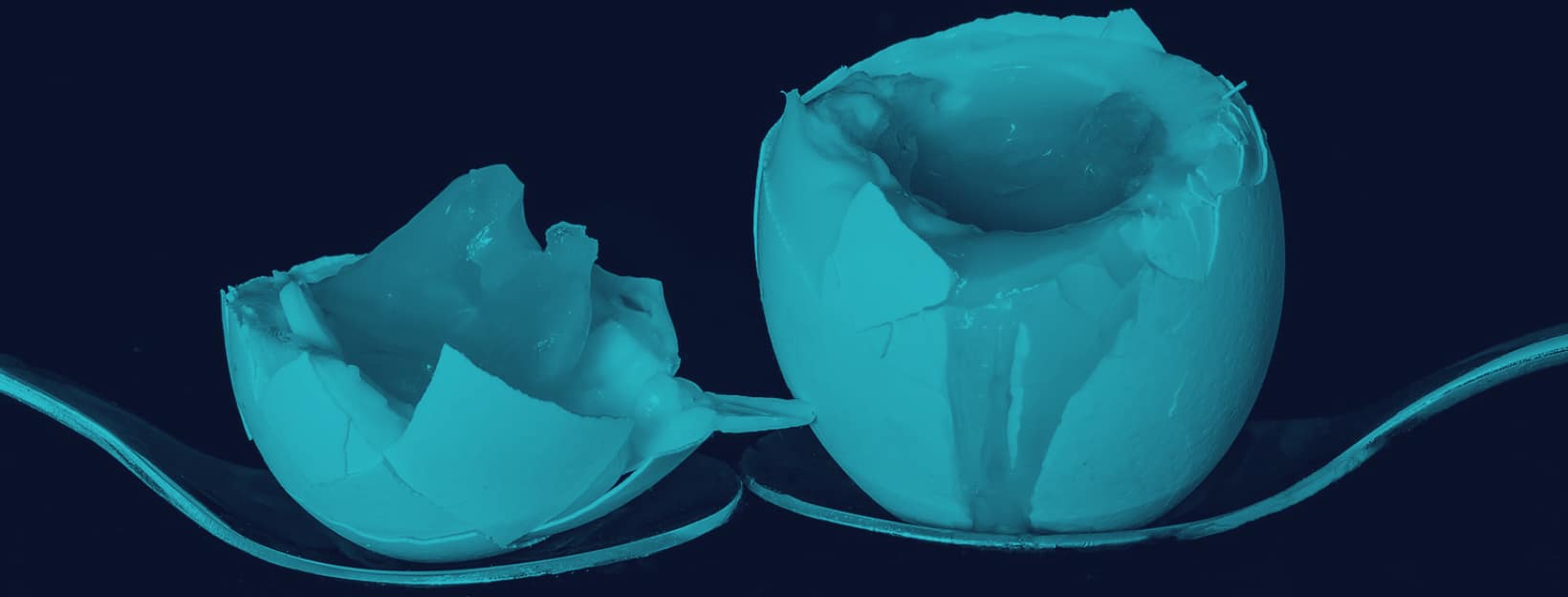In 2003, when I was roughly 14, my parents sat my brother and me down at the kitchen table. “We’re going to make a lifestyle change as a family,” they said.
I already knew that “lifestyle change” was code for “diet.” My parents—like many well-educated, upper-middle-class Americans—were frequently reevaluating their food choices throughout my childhood. I can remember phases of forgoing beef, milk, and fish, all for fears of lifestyle diseases. This time, our newest lifestyle change was coming for fruit.
In pace with every other time we’d changed our diet, my father presented a book: Dr. Atkins’ New Diet Revolution. My brother wasn’t old enough to read it, but I was.
The science in it was very science-y. Words like “insulin,” “lipids,” and “carbohydrates” appeared frequently. I felt smart after reading it, and particularly virtuous when I turned down morning toast for eggs. And I wasn’t the only one. By the end of 2004, one in 11 Americans were on some kind of low-carb diet.

Of course, Atkins didn’t stick. After he died, thought pieces about the veracity of Dr. Atkins’s claims erupted. The lifestyle change needed to be changed again.
In the following 15 years, I read health books and changed direction again and again. I’ve gone gluten-free, paleo, vegetarian, keto, Mediterranean, and raw. I’ve tracked points, restricted my eating window, and counted everything from carbs to calories. My kitchen is totally overflowing with fun kitchen gadgets for each longevity diet I tried. The work wasn’t done alone. Eventually, dieticians entered the picture. And then therapists—getting my food choices right had evolved from a focus on health into a question of morality and self-control.
Two years ago, after a doctor advised me off keto and intermittent fasting, I threw my hands up in the air. Are eggs healthy or not? What about red meat? What about whole grains? It seemed like the only “safe” foods were vegetables, and even then, some were better than others, and some were healthier cooked and others not so much.
(And don’t even get me started on my husband’s diet. How does the man have a six-pack and eat fruit only if it’s in loop form and advocated for by a toucan?)
Why is nutrition so damned confusing?
I went on a hunt. No, a rampage. Every study claiming one thing had another debunking it. The closer I looked, the more suspect all of nutrition science seemed to be. Why isn’t nutrition as straightforward as exercise research? Why is all of it so controversial? And why are people so ride-or-die about their food choices?
Let’s get into it.
Nutrition science is a really young field

Nutrition science effectively started less than 200 years ago with finding a cure for scurvy. The Science History Institute explains
According to historian Stephen Bown, scurvy was responsible for more deaths at sea than storms, shipwrecks, combat, and all other diseases combined. In fact, scurvy was so devastating that the search for a cure became what Bown describes as “a vital factor determining the destiny of nations.”
Scurvy was a particularly nasty disease. It made your arms and legs puff and swell and your skin bruise to the gentlest touch. Your gums would become marshmallows and your teeth would fall out. Internally, you would hemorrhage, eventually so much so that death would be inevitable.
Originally thought to be a problem tied to laziness, ship surgeons started to note that certain foods—lemons and meat, in particular—could help prevent and cure scurvy. That was a breakthrough at the time, especially in light of the rise of germ theory: some diseases could be caused by diet alone.
It wasn’t until 1912, when vitamins were discovered, did scientists have a basis for examining a specific cause for scurvy. Formally tying the cause of scurvy to vitamin C was not accomplished until 1969.
Something that spanners need to keep in mind is that so much of longevity science is painfully new. Beyond genetic sequencing, nutrition is arguably the newest subfield of lifespan research.
The Atwater system—the equation for determining calories from fats, carbs, and protein—wasn’t derived until 1902. Insulin was discovered in 1921. In the 1970s, there was a glut of research debating the causes of coronary disease, most notably debating dietary fat or sugar as the culprit (fat won out for policymakers, to the chagrin of low-carb diet advocates).
The popular discussion about lifestyle diseases was borne out of this period and not before. My parents were alive at this point—for the generation prior, “lifestyle disease” as a function of diet would be a new concept.
It’s only really been in the last fifty years or so that the research for nutrition and longevity could exist. And like all new science, theories are still getting sussed out. Can beta-glucan (found in oats) ward off cancer? Can they reduce LDL cholesterol? Is LDL cholesterol something we should even worry about?
The frustrating truth is that there are a whole bunch of nutritional theories competing with one another, and scientists just don’t have all the answers yet. The field is so new that there’s very little that’s unifying across the board.
Nutrition research itself is difficult

Observational studies underpin nutrition research.
Observational studies work like this: researchers draw inferences from a group of people. The researchers are not able to control the independent variable. For example, if a study is looking for the effect of sugar on sleep, sugar would be the independent variable.
There are two major kinds of observational studies. The first is cohort studies, where the observed group of people (cohort) have something in common. A study looking at people all born between 1980 and 1990 would be a cohort study. The second kind is the case-control study. Researchers identify people with an existing condition (“cases,” like “has breast cancer”) and then compare them to people who don’t have that condition (“control,” like “does not have breast cancer”).
While randomized controlled trials are considered to be the gold standard in science research, they’re not particularly practical for nutrition science. Oxford physician and epidemiologist Ben Goldacre explains to Vox,
In an ideal world, I would take the next 1,000 children born in Oxford Hospital, randomize them into two different groups, and have half of them eat nothing but fresh fruit and vegetables for the rest of their lives, and half eat nothing but bacon and fried chicken. Then I’d measure who gets the most cancer, heart disease, who dies the soonest, who has the worst wrinkles, who’s the most clever, and so on.”
But, Goldacre adds, “I would have to imprison them all, because there’s no way I would be able to force 500 people to eat fruits and vegetables for a life.”
“Feeding studies,” in which participants are kept in a lab for a series of days or weeks, can only infer short-term conclusions.
The trouble with observational studies is that they don’t have the same level of precision as randomized controlled trials. For example, in many, if not most nutritional studies, participants are asked to track all of their food inputs throughout the day—something humans are particularly bad at doing to begin with. And researchers can’t control for everything. One can easily find correlations between meat-eating and cancer diagnoses based on these studies. One can also find correlations between cabbage and innie belly buttons, egg rolls and dog ownership, and potato chips and high math scores. The causation/correlation problem is particularly problematic in nutrition research.
People are diverse

While researching the gut microbiome and longevity, I was surprised to learn that an individual’s response to common drugs, like Prozac, could be entirely dependent on the microbiome. Journalist David DiSalvo explains the importance of the finding: “We know, for example, that roughly 40% of depression patients don’t respond well to antidepressants. Could part of the reason be differences in bacteria from person to person?”
Observational studies make controlling for variables like an individual’s gut microbiome particularly challenging. Inputs to any person’s health can include their epigenetics, sleep, age, past trauma, income, education, stress, drug consumption, sex, social status, and a whole heck of a lot more. Controlling for all these variables is next to impossible for observational studies.
For example, a 2015 study published in Cell tracked 800 study participants with continuous glucose monitors and tracked their responses to 46,898 meals. The researchers found “high variability in the response to identical meals, suggesting that universal dietary recommendations may have limited utility.” As Dr. David Sinclair mentions in his longevity book Lifespan, precision medicine may be the only way to find the right diet for each individual. Humans may very well be too diverse for broad nutritional advice.
Private interests confound nutrition science

Food is big business.
In the U.S., the weight-loss industry is worth $78 billion.
Sugar processing is worth $11 billion.
Soybeans are worth $65 billion.
As a point of comparison, the U.S. cigarette industry is worth about $50 billion.
We are kidding ourselves if we think that corporate interests have no effect on nutrition research. For example, Coca-Cola spent “$132.8 million on scientific research and partnerships over a five-year period” from 2010 to 2015 as a part of a campaign to absolve sweetened beverages of contributing to America’s obesity epidemic. (And it worked.)
Scientist celebrities like Drs. T. Colin Campbell, Peter Attia, and Loren Cordain all have staked their careers (and financial investments) on their research’s findings. That’s not to say that their research is inherently flawed or incorrect, but it should cast doubt on them pivoting in light of new information.
Even the government has a private stake in what Americans eat. For example, U.S. taxpayers subsidize corn, soybeans, wheat, cotton, and rice, and the states that receive the most benefits are Texas, Nebraska, Kansas, Arkansas, and Illinois. Like coal and green energy, food—and food research—is a political issue.
So what are we to make of all this?
No one has all the answers when it comes to nutrition!
While I’d love to lock a large cohort of people into a testing chamber and meticulously control their diets over the course of several decades to find out what happens, I’m afraid such a thing isn’t possible.
For now, we, as longevity enthusiasts, will have to take each diet into consideration and determine what is right for us. That’s why, for the next several months, we’ll be deep-diving into the major diets purporting to increase longevity.
What diet works best for you? Have you been frustrated with the deluge of suggested diets for longevity? Let us know in the comments!

By day, I am a problem solver, writer, and the co-founder of Longevity Advice. I’m best known for writing about technology and have been featured in Forbes, The Hill, and TechRepublic. When the batteries are powered down and the suit comes off, I’m an enthusiastic hiker, runner, and Rocket League competitor and enjoy discussing minimalism, Studio Ghibli, and Icelandic sheepdogs.



 Subscribe for our free guide!
Subscribe for our free guide!
I find the website Nutrition.org and videos on nutrition of Dr Michael Greger particularly convincing and useful since he states something as a fact relevant to human nutrition only if it has been shown in placebo controlled double blind clinical studies. He does speak of animal and in vitro human cell studies, but not as being definitive or necessarily relevant to humans. His discussion of why the concept of food calories being something uniform or definite is totally misleading is a great eye opener (see his book How Not to Diet) and should be more widely appreciated when considering human consumption.
Since he makes no income from his books, videos etc but donates the proceeds to research and other good causes he also cannot be accused of bias for his own gain. His conclusion and continued support and research is for Whole food plant based diets as being the most healthful and also useful for maintaining healthy weights. He also has a good sense of humour. He also critiques medical and surgical procedures that are in use and reward doctors financially despite the existence of scientific research that demonstrates they are at best useless, and at worst harmful to the patients being treated.
I am a medical neuroscientist in no way associated with Dr. Greger, but I greatly approve and admire his dedication to providing science and evidence based information for the rest of us.
Hey Norma!
When I was a vegetarian, I was a huge fan of Dr. Greger! I used his Daily Dozen app and personally still use a lot of his recommendations to guide my own food choices. I find his ethic admirable–few doctors get to the level of fame that he enjoys and don’t further monetize.
I do think he’s chosen a “side” though, when it comes to nutrition. I think it’d be a pretty big shock to his fans if he started to advocate for a ketogenic diet, for example, based on new research. Again, that’s not to say that his research or his interpretation of research is bad. However, he is biased. I’d just be aware as you read through his material :).
That said, his suggestions are likely better than the Standard American Diet!
Best,
Rachel
correction: Dr Michael Greger’s website is NutritionFacts.org
Really interesting article. I had a laugh as I read the boyfriend sixpack part, because I wonder the same thing. Really looking forward to the next articles!
Haha, thanks Manja! Everyone keeps telling me that eventually my husband’s metabolism will slow down and he’ll become a landwhale, but that has yet to happen :P.
Many diets are fiercely defended by young adults, whose body and health can support a lot (veganism for example). These people will have problems in the future. The easiest thing to do is to look at what super healthy people over 70 eat, and mostly what they don’t eat, this will give you a good hint of what really hurts us. A healthy diet is not mainly about what to eat, but about WHAT NOT TO EAT (processed foods, refined carbohydrates, refined vegetable oils as example of trash food). If you remove the crap, you have the real food.
So you’d be an advocate for a blue zone diet then?
No way. Príncipe Philip, as an example, died with 99 years, and in my opinion, he is not a good example of “super healthy people”, he only had 99 years. Many people in blue zones, are not good examples of “super healthy people” they only live a lot (we cannot see only the people who appears on TV). Super healthy old people, have muscles, and do things like young people, many of them eat red meat (red meat is not trash food). I am not an expert on blue zones, but as little as I can remember they are not red meat eaters.
I recommend you visit chrismasterjohnphd.com and read his vitamins and minerals work. It’s factual about what they do in the body, what happens with a deficiency and best places from food (and supplements if necessary) to absorb them.
Pingback: Caloric Restriction for Longevity - Longevity Advice
Pingback: Low-Carb Diets for Longevity - Longevity Advice
Pingback: Mediterranean Diet for Longevity - Longevity Advice
Pingback: Vegan Diets and Longevity: What Existing Science Actually Says
Diets come and go, but the Carb Cycling diet has been around for over 20 years. Why is that? Because people don’t like constant restrictions. For this reason, the audience for the cycling diet has been growing for over 20 years and especially in recent years. Anti-aging scientists have finally realized that alternating food intake is important to prolong life. The Carb Cycling Diet has many ramifications such as cyclical fasting, cyclical keto diet, flexitarianism, 5: 2 diet, and others. More info on my FB page facebook.com/carbcyclingdiet
The Carb Cycling Diet is not free of any of the problems mentioned in this article. No diet is.
If someone claims to know the perfect diet for humans, they’re probably trying to sell you something.
Pingback: 9 Best Life Extension Kitchen Products for All Diets
I love this article. I can relate to it. We eat a mostly plant based diet but splurge on birthdays and holidays. I hope I am doing the right thing for my family by eating this way. I think it is easier than finding good organic meat and fish where we live.( rural) I would love to know whether or not all animal products are bad/good for you. Keep up the good work.
Hi Rita!
I’m so glad that this article resonated with you–I know that lots of people have had a frustrating experience with nutrition research.
We did do a roundup of vegan research that I imagine will interest you :). Here it is: https://www.longevityadvice.com/vegans-diets-and-longevity/
My best,
Rachel
Pingback: Do Coffee Drinkers Live Longer? - Longevity Advice
Pingback: The 4 Top Alternative Sweeteners For Longevity - Longevity Advice
Pingback: 5 Healthiest Olive Oils for Longevity - Longevity Advice